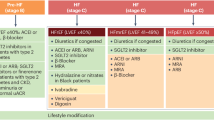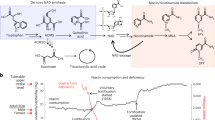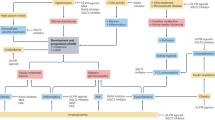Abstract
Recent clinical trials have clearly demonstrated that the administration with β-blockers decreases the mortality in the patients with chronic heart failure (CHF). However, significant heterogeneity exists in the effectiveness of β-blockers among individual cases. We focused on 39 polymorphisms in 16 genes related to adrenergic system and investigated their association with the response to β-blockers among 80 patients with CHF owing to idiopathic dilated cardiomyopathy. The polymorphisms of NET T-182C (P=0.019), ADRA1D T1848A (P=0.023) and ADRA1D A1905G (P=0.029) were associated with the improvement of left ventricular fractional shortening (LVFS) by β-blockers. Furthermore, combined genotype analysis of NET T-182C and ADRA1D T1848A revealed a significant difference in LVFS improvement among genotype groups (P=0.011). These results suggest that NET (T-182C) and ADRA1D (T1848A and A1905G) polymorphisms are predictive markers of the response to β-blockers. Genotyping of these polymorphisms may provide clinical insights into an individual difference in the response to the β-blocker therapy in CHF.
This is a preview of subscription content, access via your institution
Access options
Subscribe to this journal
Receive 6 print issues and online access
$259.00 per year
only $43.17 per issue
Buy this article
- Purchase on Springer Link
- Instant access to full article PDF
Prices may be subject to local taxes which are calculated during checkout

Similar content being viewed by others
References
Packer M, Bristow MR, Cohn JN, Colucci WS, Fowler MB, Gilbert EM et al. The effect of carvedilol on morbidity and mortality in patients with chronic heart failure. US Carvedilol Heart Failure Study Group. N Engl J Med 1996; 334: 1349–1355.
MERIT-HF Study Group. Effect of metoprolol CR/XL in chronic heart failure: metoprolol CR/XL randomised intervention trial in congestive heart failure (MERIT-HF). Lancet 1999; 353: 2001–2007.
van Campen LC, Visser FC, Visser CA . Ejection fraction improvement by beta-blocker treatment in patients with heart failure: an analysis of studies published in the literature. J Cardiovasc Pharmacol 1998; 32 (Suppl 1): S31–S35.
Follath F, Cleland JG, Klein W, Murphy R . Etiology and response to drug treatment in heart failure. J Am Coll Cardiol 1998; 32: 1167–1172.
Suwa M, Otake Y, Moriguchi A, Ito T, Hirota Y, Kawamura K et al. Iodine-123 metaiodobenzylguanidine myocardial scintigraphy for prediction of response to beta-blocker therapy in patients with dilated cardiomyopathy. Am Heart J 1997; 133: 353–358.
Fujimoto S, Inoue A, Hisatake S, Yamashina S, Yamashina H, Nakano H et al. Usefulness of meta-[123I]iodobenzylguanidine myocardial scintigraphy for predicting cardiac events in patients with dilated cardiomyopathy who receive long-term beta blocker treatment. Nucl Med Commun 2005; 26: 97–102.
Eisenhofer G . The role of neuronal and extraneuronal plasma membrane transporters in the inactivation of peripheral catecholamines. Pharmacol Ther 2001; 91: 35–62.
Tanoue A, Koba M, Miyawaki S, Koshimizu TA, Hosoda C, Oshikawa S et al. Role of the alpha1D-adrenergic receptor in the development of salt-induced hypertension. Hypertension 2002; 40: 101–106.
Chalothorn D, McCune DF, Edelmann SE, Tobita K, Keller BB, Lasley RD et al. Differential cardiovascular regulatory activities of the alpha 1B- and alpha 1D-adrenoceptor subtypes. J Pharmacol Exp Ther 2003; 305: 1045–1053.
Poole-Wilson PA, Swedberg K, Cleland JG, Di Lenarda A, Hanrath P, Komajda M et al. Comparison of carvedilol and metoprolol on clinical outcomes in patients with chronic heart failure in the Carvedilol Or Metoprolol European Trial (COMET): randomised controlled trial. Lancet 2003; 362: 7–13.
Hjalmarson A, Waagstein F . COMET: a proposed mechanism of action to explain the results and concerns about dose. Lancet 2003; 362: 1077; author reply 1077–1078.
Terra SG, Hamilton KK, Pauly DF, Lee CR, Patterson JH, Adams KF et al. Beta1-adrenergic receptor polymorphisms and left ventricular remodeling changes in response to beta-blocker therapy. Pharmacogenet Genom 2005; 15: 227–234.
Mialet Perez J, Rathz DA, Petrashevskaya NN, Hahn HS, Wagoner LE, Schwartz A et al. Beta 1-adrenergic receptor polymorphisms confer differential function and predisposition to heart failure. Nat Med 2003; 9: 1300–1305.
Kaye DM, Smirk B, Williams C, Jennings G, Esler M, Holst D . Beta-adrenoceptor genotype influences the response to carvedilol in patients with congestive heart failure. Pharmacogenetics 2003; 13: 379–382.
Hori M, Sasayama S, Kitabatake A, Toyo-oka T, Handa S, Yokoyama M et al. Low-dose carvedilol improves left ventricular function and reduces cardiovascular hospitalization in Japanese patients with chronic heart failure: the Multicenter Carvedilol Heart Failure Dose Assessment (MUCHA) trial. Am Heart J 2004; 147: 324–330.
Giessmann T, Modess C, Hecker U, Zschiesche M, Dazert P, Kunert-Keil C et al. CYP2D6 genotype and induction of intestinal drug transporters by rifampin predict presystemic clearance of carvedilol in healthy subjects. Clin Pharmacol Ther 2004; 75: 213–222.
Huang J, Chuang SK, Cheng CL, Lai ML . Pharmacokinetics of metoprolol enantiomers in Chinese subjects of major CYP2D6 genotypes. Clin Pharmacol Ther 1999; 65: 402–407.
Lennard MS, Silas JH, Freestone S, Ramsay LE, Tucker GT, Woods HF . Oxidation phenotype – a major determinant of metoprolol metabolism and response. N Engl J Med 1982; 307: 1558–1560.
Small KM, Forbes SL, Rahman FF, Bridges KM, Liggett SB . A four amino acid deletion polymorphism in the third intracellular loop of the human alpha 2C-adrenergic receptor confers impaired coupling to multiple effectors. J Biol Chem 2000; 275: 23059–23064.
Heinonen P, Koulu M, Pesonen U, Karvonen MK, Rissanen A, Laakso M et al. Identification of a three-amino acid deletion in the alpha2B-adrenergic receptor that is associated with reduced basal metabolic rate in obese subjects. J Clin Endocrinol Metab 1999; 84: 2429–2433.
Dewar JC, Wheatley AP, Venn A, Morrison JF, Britton J, Hall IP . Beta2-adrenoceptor polymorphisms are in linkage disequilibrium, but are not associated with asthma in an adult population. Clin Exp Allergy 1998; 28: 442–448.
Nishiyama T, Ikeda M, Iwata N, Suzuki T, Kitajima T, Yamanouchi Y et al. Haplotype association between GABAA receptor gamma2 subunit gene (GABRG2) and methamphetamine use disorder. Pharmacogenomics J 2005; 5: 89–95.
Acknowledgements
We acknowledge Dr Tsuyoshi Fukuda and Ms Tomoko Kubota for their stimulating discussions. We thank Dr Mitsuru Sugawara (Department of Pharmacy, Hokkaido University Hospital) for collecting blood samples. We also thank Professor Tatsuya Takagi (Department of Pharmaceutical Information Science, Graduate School of Pharmaceutical Sciences, Osaka University) for helpful discussion about statistics. This study was supported in part by a grant from the Organization for Pharmaceutical Safety and Research (OPSR) in Japan and Grants-in-Aid for Research on Measures for Intractable Diseases from Ministry of Health, Labour and Welfare and for Scientific Research from the Ministry of Education, Science, Sports and Culture of Japan. This study was also supported by a grant from the Osaka Medical Research Foundation for Incurable Diseases and from Daiichi Pharmaceutical Co., Ltd.
Author information
Authors and Affiliations
Corresponding author
Additional information
Note: A preliminary report of this work was presented at the annual meeting of the Pacific Rim Association for Clinical Pharmacogenetics in Changsha, China, 28–30 June, 2006.
Duality of Interest
The authors declared no duality of interest.
Rights and permissions
About this article
Cite this article
Nonen, S., Okamoto, H., Fujio, Y. et al. Polymorphisms of norepinephrine transporter and adrenergic receptor α1D are associated with the response to β-blockers in dilated cardiomyopathy. Pharmacogenomics J 8, 78–84 (2008). https://doi.org/10.1038/sj.tpj.6500450
Received:
Revised:
Accepted:
Published:
Issue Date:
DOI: https://doi.org/10.1038/sj.tpj.6500450
Keywords
This article is cited by
-
Pharmacogenetics in Chronic Heart Failure: New Developments and Current Challenges
Current Heart Failure Reports (2012)
-
Domperidone Treatment for Gastroparesis: Demographic and Pharmacogenetic Characterization of Clinical Efficacy and Side-Effects
Digestive Diseases and Sciences (2011)
-
Sex-dependent gene regulatory networks of the heart rhythm
Functional & Integrative Genomics (2010)
-
Chronic heart failure: β-blockers and pharmacogenetics
European Journal of Clinical Pharmacology (2009)



